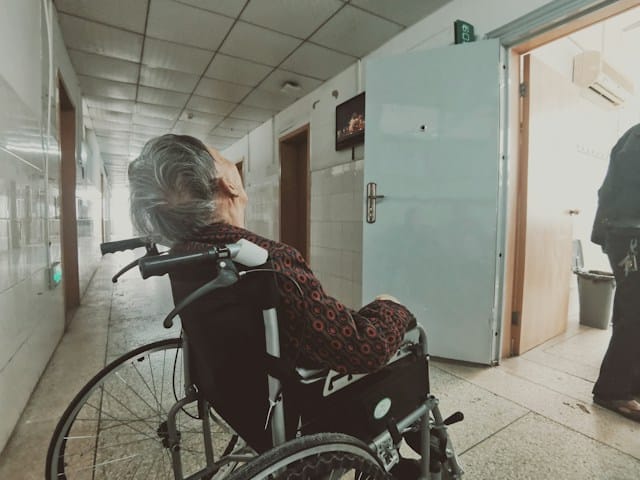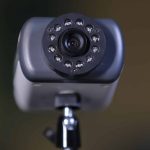Imagine a future where homes not only provide the shelter and comfort that they do today, but they also have the ability to care for their occupants, especially the elderly. This futuristic idea is not as far-fetched as it might seem. With the advancement in technology, smart homes are becoming increasingly common and they could play a significant role in improving health care for the elderly. This article explores how the integration of technology in homes can provide advanced care for senior citizens, monitor their health conditions in real time, help reduce the risk of injuries and enhance their overall quality of life.
The Concept of Smart Homes
Smart homes refer to the use of interconnected devices and sensors to automate and control various aspects of a home. These may include controlling lighting, heating, air conditioning, security systems, and even kitchen appliances. Everything can be controlled remotely over the internet using smartphones or computers.
Avez-vous vu cela : What Are Cutting-Edge Techniques in Regenerative Medicine for Joint Repair?
But the concept of smart homes extends beyond just convenience. It also encompasses the idea of leveraging technology to improve health and wellness. For the elderly, this could mean the difference between leading an independent life and being dependent on others.
How Smart Homes Can Monitor Health Conditions
One of the promising ways smart homes can contribute to elderly health care is through constant monitoring of health conditions. This is made possible through the use of various health monitoring systems that can be integrated into the home environment.
A lire également : How Can AI in Healthcare Predict and Prevent Chronic Diseases?
Such systems include wearable devices that monitor heart rate, blood pressure, and sleep patterns. There are also non-wearable devices like smart scales and smart mirrors that can track weight, body mass index, and even detect signs of skin diseases.
The data collected by these devices is then analyzed using artificial intelligence to identify any potential health issues. If any abnormalities are detected, the system can alert the user and their healthcare provider.
Furthermore, smart homes can also use sensors to monitor the user’s daily activities. For instance, if an elderly person has not gotten out of bed or has not opened the refrigerator all day, it might indicate that they are unwell and might need assistance.
Role of Smart Homes in Preventing Injuries
Another crucial aspect of health care for the elderly is the prevention of injuries, particularly falls. Falls are one of the leading causes of injuries in the elderly, and they can have severe consequences, including fractures and head injuries.
Smart homes can play an essential role in preventing such injuries. They can be equipped with motion sensors that detect unusual movements, such as a sudden fall. Upon detection, the system can immediately alert a family member or a medical professional.
In addition, smart homes can also include automated lighting systems that ensure proper lighting in all areas of the house to prevent falls due to poor visibility. It can also have automated doors and windows to prevent accidents and make it easier for elderly people with mobility issues to move around the house.
Enhancing Quality of Life Through Smart Homes
Apart from health monitoring and injury prevention, smart homes can also significantly enhance the overall quality of life for the elderly. For instance, voice-activated technologies can help those with mobility issues control various devices in the home without needing to move around.
Smart homes can also help the elderly stay connected with their loved ones. Through video calling features integrated into smart displays, the elderly can easily communicate with their family and friends, reducing feelings of isolation and loneliness.
Moreover, smart homes can also provide reminders for medication, appointments, and other important tasks, ensuring that the elderly do not forget their essential duties.
The Future of Elderly Care with Smart Homes
As technology continues to evolve, the potential of smart homes in elderly care is likely to grow. Future advancements may include even more sophisticated health monitoring systems that can detect a wider range of health conditions.
Technology companies and healthcare providers are already working together to explore new ways of integrating health care into smart homes. The goal is not just to improve the quality of life for the elderly but also to reduce the burden on health care systems.
While the idea of smart homes might seem like a luxury, it’s clear that they can provide practical and significant benefits for the elderly. They have the potential to transform elderly care, making it more proactive, personalized, and efficient. However, it’s necessary to ensure that these technologies are accessible and easy to use for the elderly, who might not be as tech-savvy as the younger generation.
Despite the challenges, the promise of smart homes in improving health care for the elderly cannot be overlooked. They have the potential to revolutionize elderly care, enabling seniors to lead independent, healthy, and fulfilling lives.
Smart Homes and Chronic Diseases Management
Chronic diseases are a significant concern for older adults, affecting their health and quality of life. The integration of smart technologies and devices in homes can play a significant role in managing these diseases. With the help of sensors and actuators, health monitoring becomes continuous and real-time, enabling timely intervention and improved health outcomes.
Consider an elderly person living with diabetes; a smart home equipped with health monitoring devices could track their blood sugar levels regularly, alert them when the levels are too high or too low, and even remind them to take their insulin. Such a system could also inform health care providers about the patient’s condition, facilitating remote patient monitoring and telemedicine.
Similarly, smart homes can assist in managing other chronic diseases prevalent among older adults, like heart disease, chronic obstructive pulmonary disease (COPD), and arthritis. For instance, wearable devices can monitor heart rate and blood pressure continuously, alerting the user and their healthcare provider in case of any alarming deviations. As such, the use of smart technology in homes can significantly improve chronic diseases management.
Moreover, artificial intelligence can play a crucial role in this aspect. By analyzing the collected data, AI can identify disease patterns and predict potential health issues before they become serious. For instance, AI could detect early signs of a heart attack based on heart rate and blood pressure data, enabling timely intervention.
Emerging research on google scholar, pubmed crossref, and crossref google also points to the potential of smart homes in managing chronic diseases among the elderly. These technologies are not just about making life more comfortable; they can significantly improve health care services and the overall quality of life for older adults.
Conclusion: Aging in Place with Smart Homes
The concept of aging in place – the ability for seniors to live independently and comfortably in their own homes – is increasingly becoming a reality with the advent of smart homes. By integrating smart technologies and devices into homes, we can create a living environment that not only ensures comfort and convenience but also actively contributes to the health and wellbeing of older adults.
Smart homes can monitor health conditions in real-time, prevent injuries, manage chronic diseases, and enhance the overall quality of life for the elderly. They can provide reminders for medication, assist with daily tasks, and help seniors stay connected with their loved ones, reducing feelings of loneliness and isolation.
However, it’s crucial to make these technologies accessible and user-friendly for older adults. Given that many seniors may not be as tech-savvy as the younger generation, it’s essential to design these technologies with simplicity and ease of use in mind. Training and support should also be provided to help the elderly effectively use these technologies.
Moreover, studies highlighted on platforms like article pubmed and pmc free remind us of the importance of addressing issues related to data privacy and security. Since smart homes collect and analyze a significant amount of personal and health data, stringent measures should be in place to protect this information.
In conclusion, smart homes have the potential to revolutionize health care services for the elderly, enabling them to lead independent, healthy, and fulfilling lives. While the path to fully integrated smart homes may have challenges, the benefits they offer make them a promising solution for the future of elderly care. As the concepts and technologies of smart homes continue to evolve, they will likely become an integral part of our efforts to improve the quality of life for the aging population.













